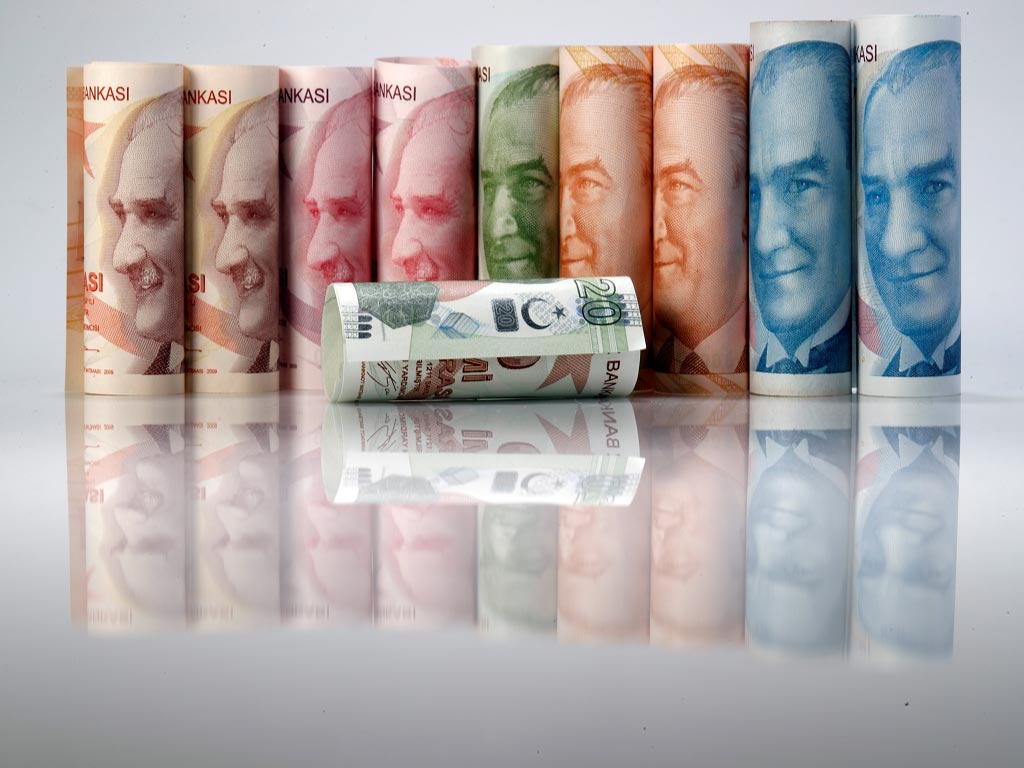 Turkey led declines in most emerging market currencies on Friday, with the lira sliding as investor disappointment over the government's economic reform plan unveiled this week left a pall over the currency.
Turkey led declines in most emerging market currencies on Friday, with the lira sliding as investor disappointment over the government's economic reform plan unveiled this week left a pall over the currency.
A reform plan released on Wednesday featuring a 28 billion lira ($4.85 billion) capital injection into Turkish state banks did little to soothe frayed nerves as the government tries to gain market credibility and deliver a turnaround for the battered economy.
MSCI's index of emerging market currencies dipped 0.1 percent, while the developing world stocks index edged lower.
Turkey's lira was 0.8 percent weaker on the day after plumbing three-week lows. It is poised to post a 2.6 percent drop on the week.
"If you look at the Turkish lira I don't see any reason why it would appreciate," said Guillaume Tresca, senior emerging market strategist at Credit Agricole. He said "there was really nothing new" with the reform plan despite investors' expectations being quite low.
"It's not a real market...you don't take the risk on TRY, or if you do it is just for one, two or maybe three days," Tresca said, referring to Turkish authorities recent squeeze on lira short-sellers in the offshore market.
Turkish stocks fell 0.7 percent on broad-based losses, while the country's dollar bonds dipped across the curve.
Turkey has stood its ground against the United States in recent weeks over procuring a Russian missile defence system, saying it would look elsewhere if it cannot get Patriot missile shields and F-35 jets from Washington.
Russia's rouble improved slightly, with stronger prices of oil, a key export. Stocks rose 0.3 percent, primarily on gains among energy firms' shares.
South Africa's rand softened slightly, while stocks were little changed.
In emerging Europe, Hungary's forint was marginally softer against the euro, while stocks ticked up 0.1 percent to a record high.
Among the index's top gainers was automotive sector-focused investment firm AutoWallis Nyrt, which rose 2.6 percent.




















Comments
Comments are closed.